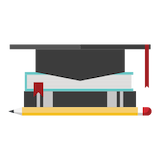It's easy to start your application.
Master's & Certificate Programs
MS in Systems Science & Mathematics
Learn how you can earn your MS in Systems Science and Mathematics at the McKelvey School of Engineering.

Invest in yourself and in your career by earning your master's degree in systems science & mathematics. Graduate with the knowledge, skills and personal network you'll need to succeed.
The Master of Science in Systems Science & Mathematics (MSSSM) offered by the McKelvey School of Engineering is an academic degree designed for both full-time and part-time students interested in- proceeding to the departmental full-time doctoral program and/or professional practice in an industrial career.
Systems science and engineering is based on an approach that views an entire system of components as an entity rather than simply as an assembly of individual parts; each component is designed to fit properly with other components rather than to function by itself.
Systems science is a rapidly developing field, as well as one of the most modern segments of applied mathematics and engineering. You'll study the identification, modeling, analysis, design and control of systems as potentially large and complex as the United States economy or as precise and vital as a space voyage.
Students who earn their Masters of Science in Systems Science & Mathematics gain a competitive edge over their peers. Our graduates have gone on to advance their studies earning additional degrees from Harvard, Northwestern and Michigan State while other graduates have gained employment as Data Scientists and Software engineers in various organizations such as the Department of Defense, the Analysis Group and Amazon.


